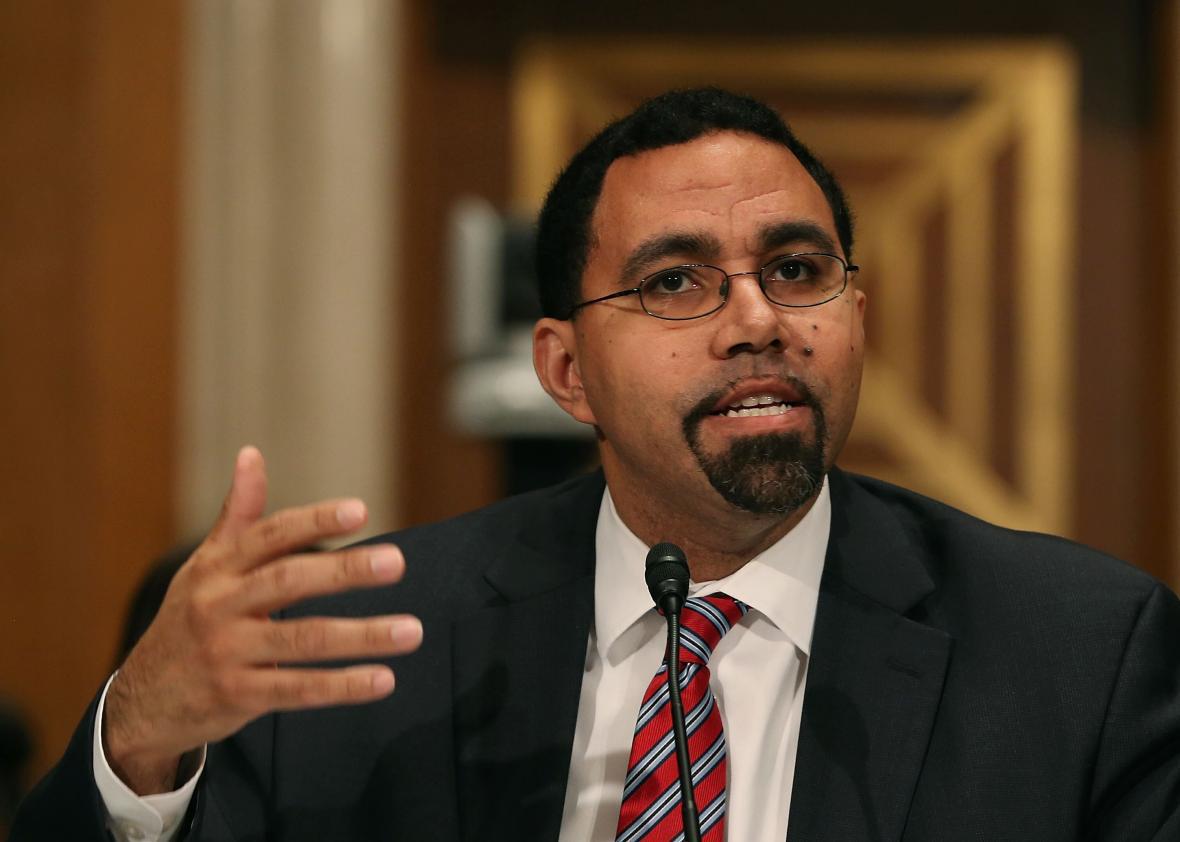U.S. Education Secretary John B. King Jr. sent a letter this week to governors and chief state school officers urging them to end corporal punishment in schools. Corporal punishment was used on more than 110,000 students during the 2013-2014 academic year, according to the Department of Education’s Civil Rights Data Collection. It’s currently either expressly permitted or not prohibited in 22 states, and is most common in Southern states like Texas, Arkansas, Mississippi, and Alabama. A bill to ban corporal punishment on a federal level was introduced by Rep. Carolyn McCarthy in 2010, but it has yet to pass. This sets us apart from 42 other countries where such measures are illegal.
Texas, for example, defines corporal punishment as “hitting, paddling, spanking, slapping, or any other physical force used as a means of discipline.” In many states, acts of corporal punishment that are considered kosher in schools would be considered criminal assault or battery if done to another adult. Texas banned this kind of discipline in prisons back in 1941.
In his three-page letter, King argues that corporal punishment is counterproductive in education. It teaches students that “physical force is an acceptable means of solving problems, undermining efforts to promote nonviolent techniques for conflict resolution.” Studies show that corporal punishment makes children more defiant, aggressive, and oppositional and impacts their ability to learn. In the long run, it can lead to mental health issues and alcohol and drug abuse.
Corporal punishment is also racist and unfairly targets boys. According to data collected by the Department of Education, more than one-third of students who were subject to physical disciplinary measures during the 2013-14 school year were black. Black students only make up 16 percent of the total public school population. In states where corporal punishment is legal, black boys were 1.8 times as likely as white boys to be hit or spanked in school, and black girls were 2.9 times a likely as white girls to experience the same. Overall, boys are far more likely to be disciplined in this manner, making up 80 percent of the cases of corporal punishment in recent years. Students with disabilities also experienced higher rates than those without.
This letter was likely long in the works before Donald Trump’s victory and subsequent decision to stock his cabinet with racists like Jeff Sessions. King’s actions and words were, therefore, probably not designed as a Hail Mary to do as much good as possible before it’s too late, but a prelapsarian move that seemed both just and inevitable. Like so many of our other hopes and dreams for a more equitable nation, the optimism behind King’s letter no longer seems justified. It’s suddenly become much harder to imagine the white working class, newly empowered, being open-minded to ending a practice that many view as a an important and effective tradition.
Still, there’s some hope. A number of institutions with a reputation for taking a hard line on discipline have banned corporal punishment, including the Department of Defense-run schools and most juvenile detention facilities. Also, the practice seems to be slowly disappearing on its own. The number of children who experienced corporal punishment during the 2011-12 school year was 163,333, considerably higher than the 109,000 only two years later. And parents, both wealthy and poor, are turning away from spanking as a disciplinary measure in their own homes as well. The potential influence of Secretary King’s letter may be compromised by our new political reality, but fortunately it seems as though he’s got decades of momentum on his side.
